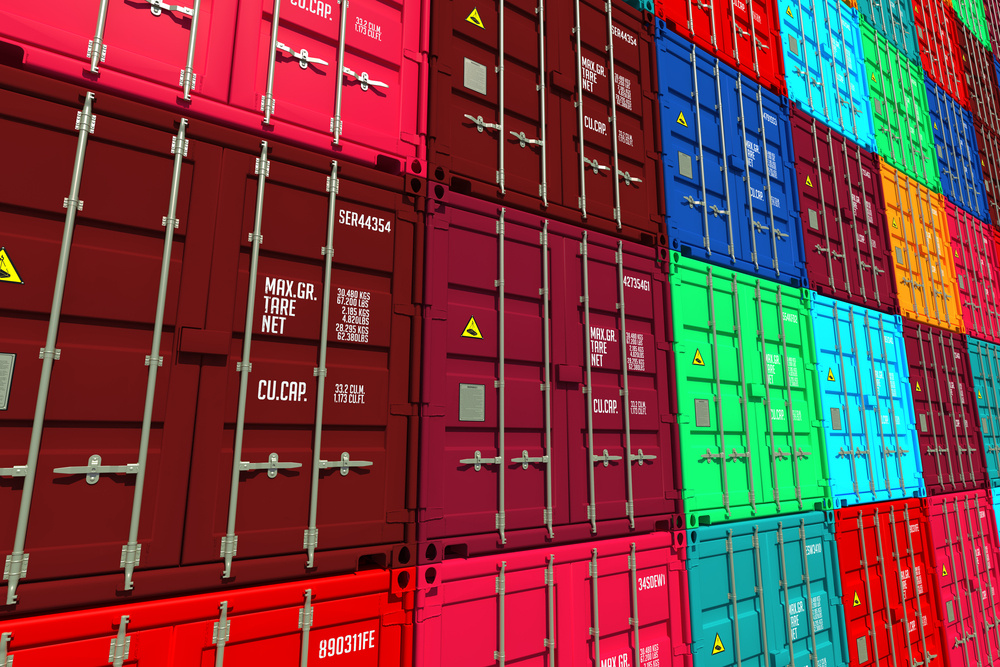In today's global trade, keeping goods secure during transport is crucial for shippers and logistics companies. Cargo theft incidents were up more than 57% in 2023 compared with the year prior, according to CargoNet, a Verisk company. Protecting shipments isn’t just about preventing theft—it helps keep supply chains dependable.
This guide explains why keeping shipments secure matters, offers helpful tips, outlines key legal factors, and shows how law enforcement helps protect goods. By understanding how to secure shipments, companies can strengthen their supply chains and ensure smooth movement across different modes.
What is Freight Security and Why is it Important?
Security measures and practices protect shipments from theft, damage, or other risks during transport. Ensuring the safety of goods minimizes losses, builds trust, and strengthens supply chain integrity. Here’s why focusing on security keeps shipments safe and operations smooth.
Understanding Cargo Theft and Its Impact on Shippers
Cargo theft is a major threat, and its impact can lead to financial losses, higher insurance premiums, and damaged reputation. Reports highlighted a rise in theft in 2022, stressing the need for effective solutions. High-value shipments are often targeted, making it vital for shippers to adopt strategies to prevent theft. Understanding theft methods helps develop plans to safeguard goods.
Key Components of Freight Security
Protecting goods as they move through the supply chain involves various measures. From physical safeguards to tech solutions, every step ensures safe delivery. Here’s a quick overview of key components that reduce risks:
- Physical Measures
- Monitoring facilities to keep goods safe.
- Securing trailers and tractors to prevent unauthorized access.
- Technological Solutions
- Enhancing visibility with tracking and monitoring systems.
- Using tech to respond quickly to risks.
- Security Practices
- Conducting audits to evaluate effectiveness.
- Risk assessments to address vulnerabilities during transport.
- Security Escorts
- Trained teams monitor high-value shipments.
- Reducing theft risk by providing oversight during transit.
- How Security Enhances Supply Chain Integrity
Effective measures contribute to a strong supply chain. Through robust efforts, shippers prevent theft and ensure goods reach destinations safely. Enhanced security builds trust among clients and partners, leading to stronger business relationships. A secure supply chain faces fewer disruptions from theft or other criminal acts, benefiting the logistics sector.
How Can Shippers Ensure Cargo is Secure?
Choosing the right carrier is key. Shippers should consider carriers with strong standards and theft prevention measures. Clear communication about expectations reinforces the importance of security throughout transport.
Incorporating Cybersecurity in Freight Security
The logistics sector relies on digital systems. Shippers must protect systems from cyber threats that could compromise shipment details. Firewalls, encryption, and training can reduce risks. A comprehensive approach addresses both physical and digital threats.
Employee Training for Theft Awareness
Training employees is essential for effective security. Staff education on theft awareness can identify threats and implement preventive steps. Training sessions should cover protocols, reporting incidents, and recognizing suspicious activity.
The Role of Law Enforcement in Freight Security
Law enforcement collaborates with shippers to address and prevent theft. Partnerships with authorities enhance efforts, provide crime trend insights, and help develop strategies. Their expertise ensures efficient recovery of stolen goods.
Reporting Cargo Theft
In case of theft, it’s crucial to report incidents quickly. Prompt action helps recover stolen goods and contributes to broader efforts to combat theft. Documenting incidents supports regional and national efforts to reduce risks.
Legal Implications of Theft
The legal impacts for both shippers and thieves can be significant. Understanding the framework ensures compliance and protection of rights. Stakeholders should be aware of how theft affects operations, potentially leading to stricter regulations and increased scrutiny.
How Can Logistics Companies Boost Security?
Boosting security is essential for logistics firms aiming to protect goods and create a reliable supply chain. Proactive strategies reduce risks and enhance shipment safety.
- Invest in Tracking Technology
- Use GPS and real-time tracking for monitoring.
- Employ sensors to detect unauthorized access.
- Strengthen Physical Security
- Secure facilities, trailers, and tractors with locks and surveillance.
- Control access to authorized personnel.
- Develop Security Plans
- Conduct risk assessments and audits.
- Create protocols, training programs, and response plans.
- Use Security Escorts for High-Value Shipments
- Assign trained teams for extra protection during transit.
- Focus on critical stages like pick-up and delivery.
- Partner with Trusted Providers
- Work with firms that maintain strong protocols.
- Share resources for unified protection.
- Employee Training
- Train staff on procedures and theft prevention.
- Foster a culture of proactive security.
- Implement Cybersecurity Measures
- Protect data and shipment details with cybersecurity systems.
- Regularly update software to combat evolving threats.
Enhancing Cargo Protection with Visigistics
Securing cargo during transportation is essential to maintaining a strong and reliable supply chain. By implementing comprehensive strategies that include physical measures, technology, employee training, and collaboration with trusted partners, businesses can minimize theft risks and ensure safe delivery. As the logistics landscape continues to evolve, staying proactive and adaptable is key to protecting valuable shipments and maintaining customer trust. Prioritizing cargo protection ultimately strengthens business operations and boosts overall supply chain resilience.
At Visigistics, we know that a successful protection strategy starts with clear goals and tailored solutions. By assessing your operations and considering market trends, customer needs, and supply chain dynamics, we create and implement strategies to keep your business ahead. From transport management to digital integration, we offer flexible, cost-effective solutions to optimize and protect your logistics.
Ready to Elevate Your Supply Chain? Connect with Visigistics to learn how our customized solutions can transform your operations and secure your cargo. Contact Us today!
Frequently Asked Questions
What are the best practices for ensuring cargo protection during transportation?
Best practices include utilizing a protection team, implementing real-time tracking systems, conducting thorough background checks on third-party carriers, and employing escort services for high-value cargo. Ensuring that every person involved in the supply chain understands their role in safeguarding the cargo is also crucial.
How can I safeguard my air cargo from theft?
To protect air cargo from theft, it is essential to collaborate with TSA-approved services, employ strict access control measures at facilities, and conduct regular audits. Additionally, keeping an inventory of valuable cargo and maintaining visibility throughout the supply chain can help mitigate risks.
What is the role of escort services in cargo protection?
Escort services play a vital role by providing armed personnel to accompany high-value shipments. This capability helps to deter potential theft and ensures that valuable cargo reaches its destination safely, especially in high-risk areas.
What insights can I gain from industry reports on freight theft?
Industry reports on freight theft provide valuable insights into trends, patterns, and common vulnerabilities within the supply chain. These reports often highlight areas where theft is most prevalent, suggest improvement strategies, and recommend best practices to prevent cargo from being stolen.
What should I do if my cargo is stolen during transportation?
A: If your cargo is stolen during transportation, immediately report the incident to local law enforcement and notify your insurance provider. It is also important to inform your management team and review footage or tracking information to gather evidence. Implementing a thorough investigation can help prevent future incidents.
How can leveraging technology improve cargo protection?
Leveraging technology can significantly enhance cargo protection by providing advanced tracking systems, real-time monitoring, and automated alerts for unauthorized access. These technologies improve the ability to respond quickly to any breaches and can help in preventing theft during transportation.
What are the common vulnerabilities in supply chain protection for valuable cargo?
Common vulnerabilities for valuable cargo include inadequate protective measures at warehouses, poor visibility of shipments, lack of employee training on protocols, and failure to conduct regular assessments of potential theft risks. Addressing these vulnerabilities is crucial to safeguarding valuable cargo.





